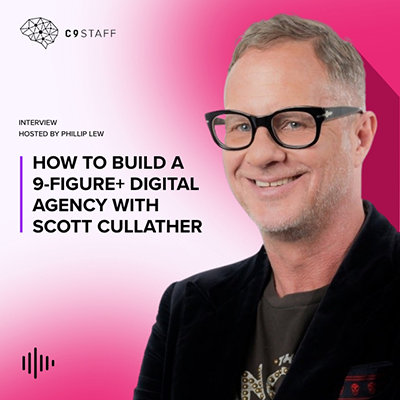
Book Phillip to speak at your next event!
How To Build A 9 Figure + Digital Agency with Scott Cullather
PHILLIP
So, whether you’re an agency that’s focused on live events, digital advertising, brand storytelling, or something completely unique, in this episode of Innovators, where your future is now, we’re going to be joined by the CEO of INVNT, Scott, who has successfully grown his agency into an international juggernaut with offices in eight countries around the world, and with revenue almost topping nine figures; that’s 100 million dollars per year.
So, if you’re the owner, or if you work at a digital marketing agency, or you’re a brand interested in learning some of INVNT’s secrets when it comes to live event brand storytelling, then sit back, relax, and let’s get started.
To get started, I decided to ask Scott how he first got interested in starting a digital live events marketing agency, to begin with.
SCOTT
And so, I got the bug at a very, very young age. I graduated from high school, went to the University of Richmond, graduated with an economic and business degree, although I always had this sort of creative sense about me. And two years after graduating, I went to work for his agency. He had left Jack Morton and founded an agency called Williams/Gerard, which unfortunately, is no longer in business. And I started off with that agency and went up through the ranks over about an 18-year period, during which time I was transferred to New York, which I am now living in. And I was the vice president and general manager of their agency in New York. And so, I’ve really had this idea of live events and experiences in my blood since I was born.
Phillip
SCOTT
And then you’ve got to figure out the mechanism by which to communicate that story. And for us, we’ve been very fortunate with our business because we’ve actually grown up in the live event space, which interestingly enough, is kind of in a collision with the digital space right now. Because if you look at the global population, over half the world’s population is made up right now of millennials and Gens. I think the statistics are that almost 5 billion people or a half the world’s population are made up of those two demographics. And they want one thing more than anything else. They want a shareable experience.
And so, for us, that means a live event that is combined with digital technology. And so, if you have the right story, you understand how to communicate to the audience, and you can create some sort of a shareable experience, you can create a sticky engagement that creates a — like a love affair between a brand or an organization and its key target audiences.
Phillip
So, at this point, I decided to ask Scott to share how he incorporated these insights into his own agency and select clients.
SCOTT
If you look at it, statistically, you know, human beings are bombarded by over 20,000 messages a day. So in order for a brand to effectively communicate and create real ROI, we need to help them tell stories in a way that’s unique and that’s disruptive, but at the same time, is on brand and on message.
Phillip
SCOTT
Phillip
SCOTT
And they’re not just live experiences, they’re experiences of any kind. And to us, it’s much like the HR head was 15 or 20 years ago, there wasn’t one. You didn’t have a human resources person that reported in to the CEO or the COO. That HR person reported in to some senior VP which is a, you know, lofty position. But now, the HR title sits at the C-suite table. So in our opinion, this chief experience officer or the new CEO for progressive companies and organizations that really want to create this emotional connection with their brands, between their brands and their consumers or their customers and their products and their customers, and they’re going to invest the kind of money that they’re investing, they really need somebody in the C-suite that is sitting upstairs, designing the strategies, rolling it out through the organization, making sure it’s effectively activated through the organization, and that it’s pulled through to the consumer or the customer. And we think that the progressive companies are going to start creating this new position called the chief experience officer.
Phillip
SCOTT
Phillip
SCOTT
So the way to change that perception is to be daring. Regardless of what your product offering is, you’ve got to be bold and you’ve got to stand out, because the general customer or consumer isn’t going to make a change, unless there’s an incentive for that. Now, a lot of startups will go to the opposite value proposition, and they’ll dive on price. And I actually think that’s a mistake, because you can’t compete with the larger organizations on price. Like, I can’t compete with Amazon, nor can many of the retailers, right, because they’re so big, that they have the advantage of scale. So, price, I think, is the wrong value proposition. So I would say be daring.
Number two, I think that you have to create a footprint for yourself that makes you look bigger and stronger than you really are. So one of the things that we did very early on, is we invested in PR and marketing, and we invested in doing things that got us exposure. So, and there’s a lot of inexpensive things that you can do: apply for awards, industry awards, go to speaking engagements, get on Philip Lew’s podcast, you know. There’s a lot of different things that you can do to actually increase the footprint of what you really are in order to gain attraction. So, those are the first three things that I would suggest.
Phillip
SCOTT
The first is cost. So, when you start your own agency or start your own business, you’re doing everything. You know, we were the CFO of the company. We were the chief operating officer. We were the CEO, we were the executive producers, we are the graphic designers, we are the creative directors. We did at all. So, and we had to because we had no real resources, and much like any other entrepreneurs. So, there comes a point where, as an entrepreneur, if you want to grow or if you want to build a sustainable, scalable business, you have to make an investment in resources that will allow you to move away from working in the business to working on the business. So that’s one thing.
The second thing is our expertise. You’re eventually going to outgrow — the business, as you continue to scale, will outgrow your ability or your expertise. And so, by demand, you’re going to have to find people that are better at right what you used to do than what you can do now. And then so that’s a must.
And then the third thing is ego. Entrepreneurs say, “I have a pretty healthy — I have a healthy ego. We have healthy egos.” You’ve got to check your ego at the door and let other people take responsibility, take control, give them autonomy, let them have a certain level of decision making, if not a lot of decision making in the business. And that means that you’ve got to set your ego on the table, you know. And it’s even 12 years into this and, you know, we’re almost a 100 million-dollar business, you know, we’re in five different countries. We have to check our egos at the door all the time because we have an amazing team of people that can actually do the job better than we can do. We just have to let them do that.
Phillip
And as we wrap up this segment of Innovators, that is ultimately my message to you, the listener. Regardless of the size of your company or what your ultimate goals may be, there is no such thing as certainty, only opportunity, so seize it. Seize it now.
Thanks for listening to this episode of Innovators, where your future is now. To learn more about Scott and INVNT or to book his agency to do brand, storytelling, and live events, make sure and check out his website at www.invnt, I-N-V-N-T, www.invnt.com.







0 Comments